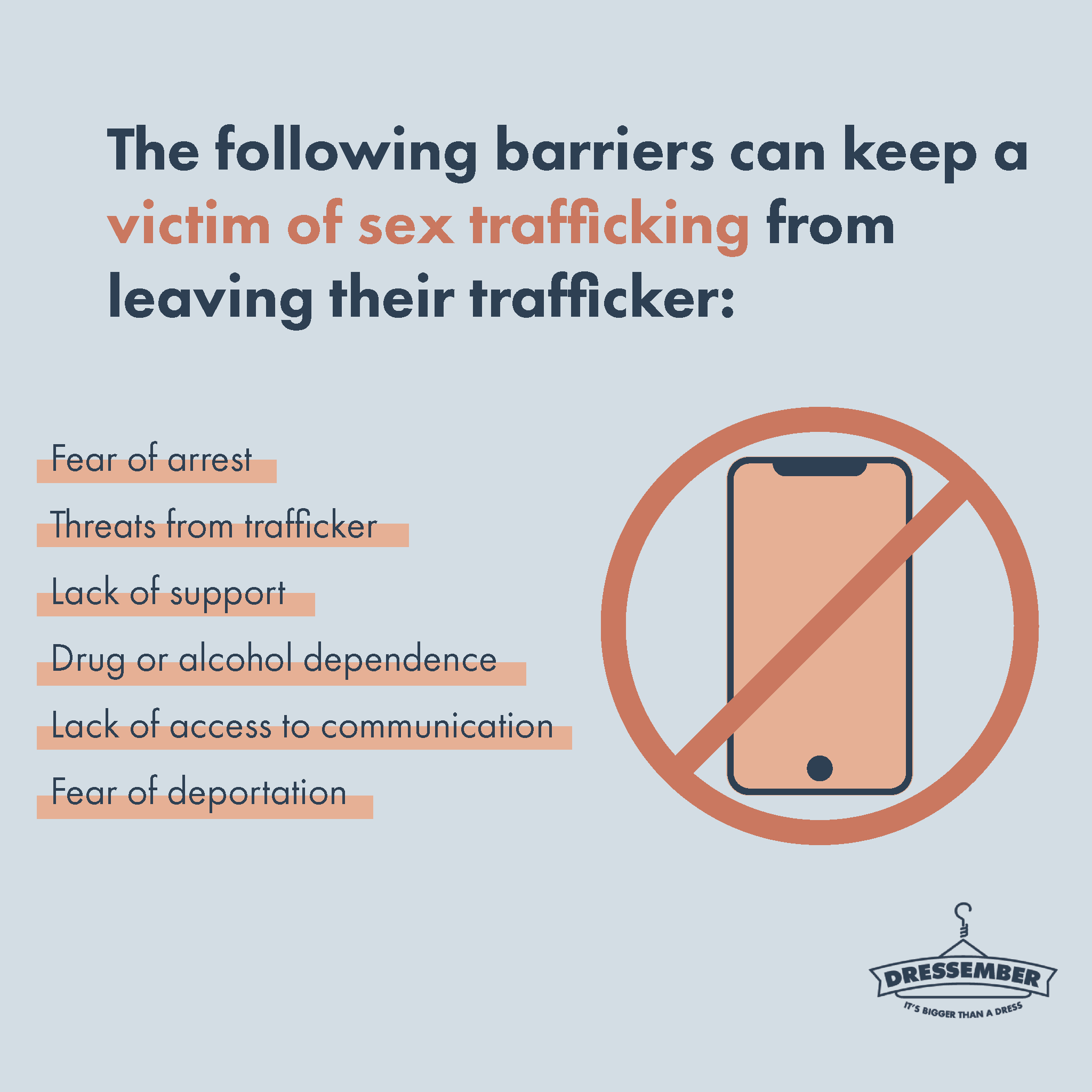What keeps someone in a trafficking situation?
Dressember Reading Day #12
Every day during the month of December, we’re answering common questions and breaking down different aspects of human trafficking on our blog and Instagram. Join us in raising awareness about the injustice of human trafficking by sharing, donating, or joining the Dressember campaign (it’s not too late!).
When we think of human trafficking, we often imagine excessive security measures designed to hold people captive. However, human trafficking often does not involve physical restraints. Many who are trafficked can suffer from mental and emotional coercion that keeps them confined more than any physical chains could.
So, what else prevents someone from seeking freedom?
Fear of being arrested
Because many may be unaware that they are in a human trafficking situation, they fear that their association with prostitution or other illegal activities would lead to their arrest if they were to escape. While they’re truly the victims in the situation, arrests have been a problem in the past.
Fear of deportation
In particular, immigrants fear they could face deportation for being associated with human trafficking. Immigration status is also a powerful tool that traffickers can use for blackmail, often withholding visas and passports that prove the worker is in the country legally.
Intimidation from trafficker
Many in human trafficking situations have to live with constant threats from their traffickers who may not only be threatening them, but their families, as well. Traffickers may threaten violence, deportation, or public exposure if they leave.
Speaking of...
Public exposure of victims is a major problem, particularly with immigrants who are uncertain of their rights in the United States. Victims are often treated as criminals and shamed by having their identities exposed.
Lack of support
Because many are being exploited by someone they know such as a family member or partner, they risk losing support and their means of survival if they escape. Others may fear that no one would believe them if they exposed their traffickers.
Dependence on drugs and alcohol
Traffickers will often intentionally subject their victims to excessive drugs or alcohol, knowing they will become addicted. This dependence ensures that the individual will stay with their traffickers who can coerce them into forced labor as they experience withdrawals.
Lack of access to communication
If they are not deprived of technology completely, many individuals in human trafficking situations are typically monitored closely by their traffickers, meaning they have virtually no way of communicating with anyone who can help them. Even if they are allowed in public, it is usually under the supervision of someone else. While texting has expanded the number of escapes, the option is not available to everyone.
What can I do to help?
Human trafficking takes many different forms, and those in human trafficking situations can find themselves held captive in a variety of ways. Mental and emotional coercion are just as confining as physical bondage but are often not considered when we discuss human trafficking. Acknowledging these alternate forms of restraint can help more people to recognize trafficking situations, especially ones where the victim is not physically being held captive.
Further Reading:
Human trafficking: Why do so many victims refuse help?
Victoria Shircliffe is a superfan of the television show "Once Upon a Time," and when she’s not working at the public library, she’s travelling across the country to fan conventions! She recently graduated from Bellarmine University with a degree in English and Marketing Communication and hopes to pursue a Masters in English. She is passionate about feminism, fairy tales, and fighting human trafficking.


